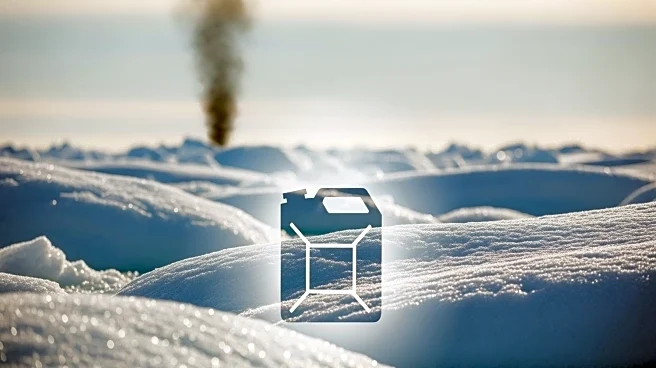What's Happening?
Arctic states face a critical deadline to propose regulations on polar fuels to reduce black carbon emissions from shipping, which significantly impact the region's climate. The International Maritime
Organization's Pollution Prevention and Response subcommittee meeting in February presents an opportunity to address these emissions, but Arctic states must act by December 5th to submit proposals. Black carbon, a potent climate pollutant, accelerates Arctic warming by reducing the region's reflectivity. The Nordic Council of Ministers has recommended action, emphasizing the need for cleaner fuels in polar waters. This initiative aims to demonstrate leadership in combating climate change and protecting the Arctic environment.
Why It's Important?
The regulation of polar fuels is crucial for mitigating the rapid warming of the Arctic, which has global implications. Black carbon emissions contribute to the melting of ice and snow, exacerbating climate change and threatening ecosystems. Addressing these emissions is vital for preserving the Arctic's unique environment and preventing further climate impacts. The proposed regulations could set a precedent for international cooperation in environmental protection, highlighting the importance of joint efforts in combating climate change. The success of this initiative could influence broader climate policies, encouraging other regions to adopt similar measures to reduce emissions and promote sustainability.
What's Next?
Arctic states must meet the December 5th deadline to submit proposals for polar fuel regulations, ensuring that the issue is addressed at the upcoming IMO meeting. The success of these efforts will depend on collaboration among Arctic and non-Arctic states, as well as support from international organizations. The implementation of regulations could lead to significant reductions in black carbon emissions, contributing to global climate goals. Stakeholders will need to monitor the progress of these initiatives and advocate for continued action to protect the Arctic environment. The outcome of the IMO meeting will likely influence future climate policies and international cooperation in environmental protection.









